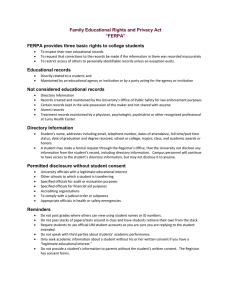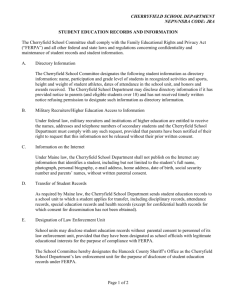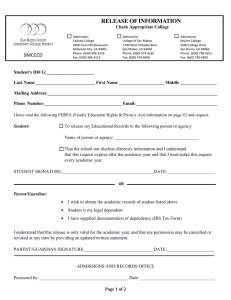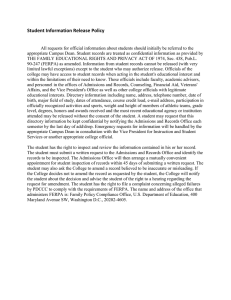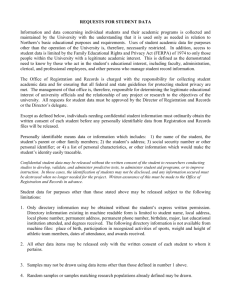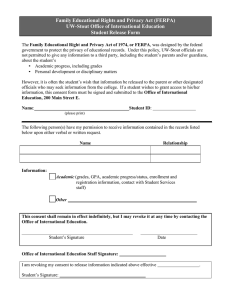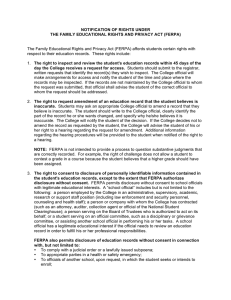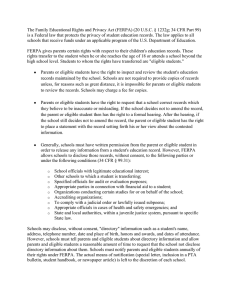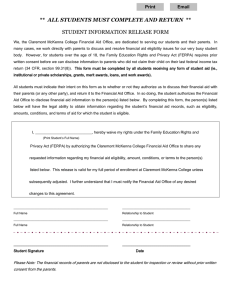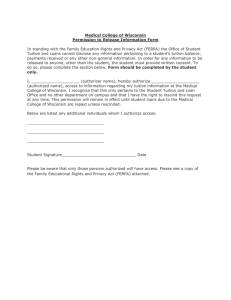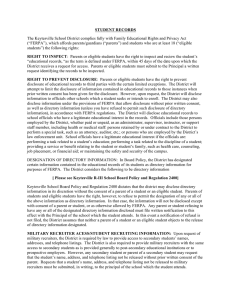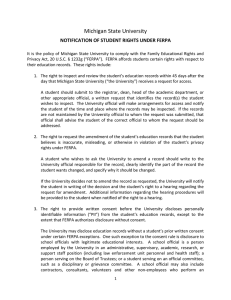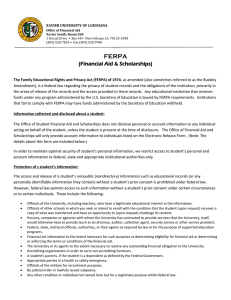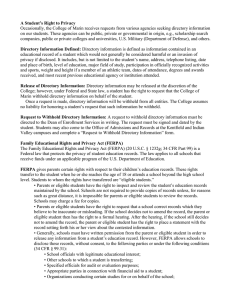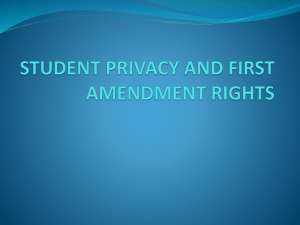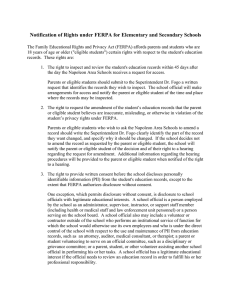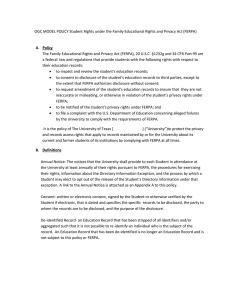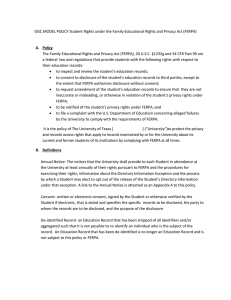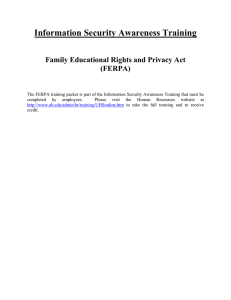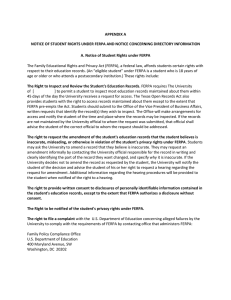FERPA FOR PARENTS AND STUDENTS
advertisement
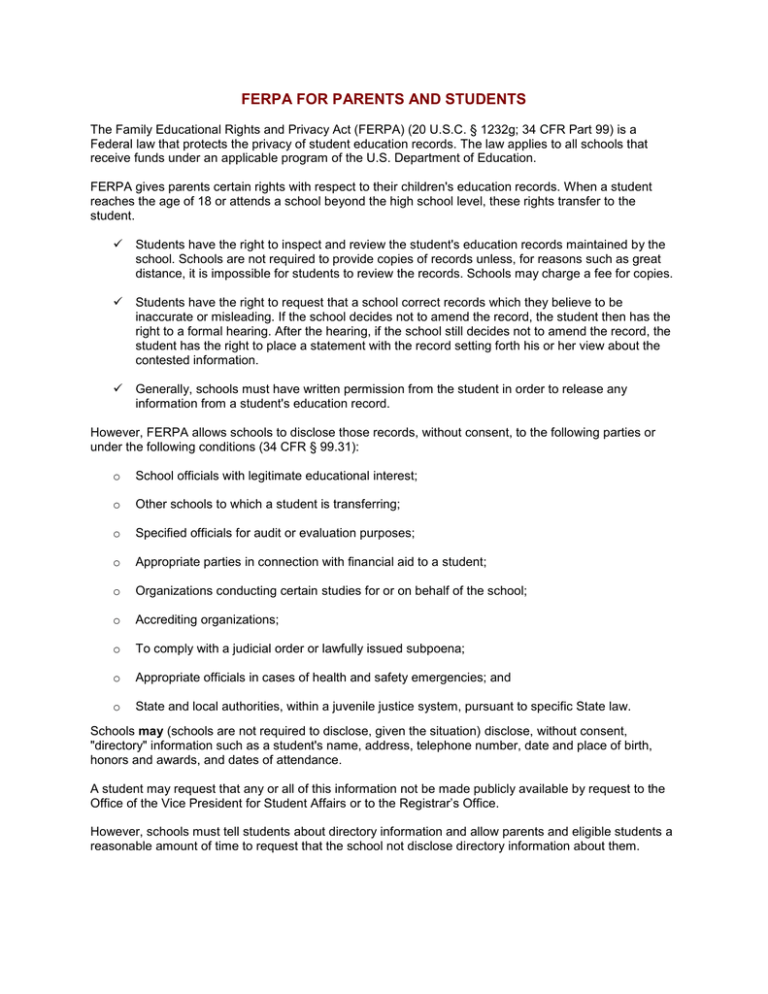
FERPA FOR PARENTS AND STUDENTS The Family Educational Rights and Privacy Act (FERPA) (20 U.S.C. § 1232g; 34 CFR Part 99) is a Federal law that protects the privacy of student education records. The law applies to all schools that receive funds under an applicable program of the U.S. Department of Education. FERPA gives parents certain rights with respect to their children's education records. When a student reaches the age of 18 or attends a school beyond the high school level, these rights transfer to the student. Students have the right to inspect and review the student's education records maintained by the school. Schools are not required to provide copies of records unless, for reasons such as great distance, it is impossible for students to review the records. Schools may charge a fee for copies. Students have the right to request that a school correct records which they believe to be inaccurate or misleading. If the school decides not to amend the record, the student then has the right to a formal hearing. After the hearing, if the school still decides not to amend the record, the student has the right to place a statement with the record setting forth his or her view about the contested information. Generally, schools must have written permission from the student in order to release any information from a student's education record. However, FERPA allows schools to disclose those records, without consent, to the following parties or under the following conditions (34 CFR § 99.31): o School officials with legitimate educational interest; o Other schools to which a student is transferring; o Specified officials for audit or evaluation purposes; o Appropriate parties in connection with financial aid to a student; o Organizations conducting certain studies for or on behalf of the school; o Accrediting organizations; o To comply with a judicial order or lawfully issued subpoena; o Appropriate officials in cases of health and safety emergencies; and o State and local authorities, within a juvenile justice system, pursuant to specific State law. Schools may (schools are not required to disclose, given the situation) disclose, without consent, "directory" information such as a student's name, address, telephone number, date and place of birth, honors and awards, and dates of attendance. A student may request that any or all of this information not be made publicly available by request to the Office of the Vice President for Student Affairs or to the Registrar’s Office. However, schools must tell students about directory information and allow parents and eligible students a reasonable amount of time to request that the school not disclose directory information about them.
